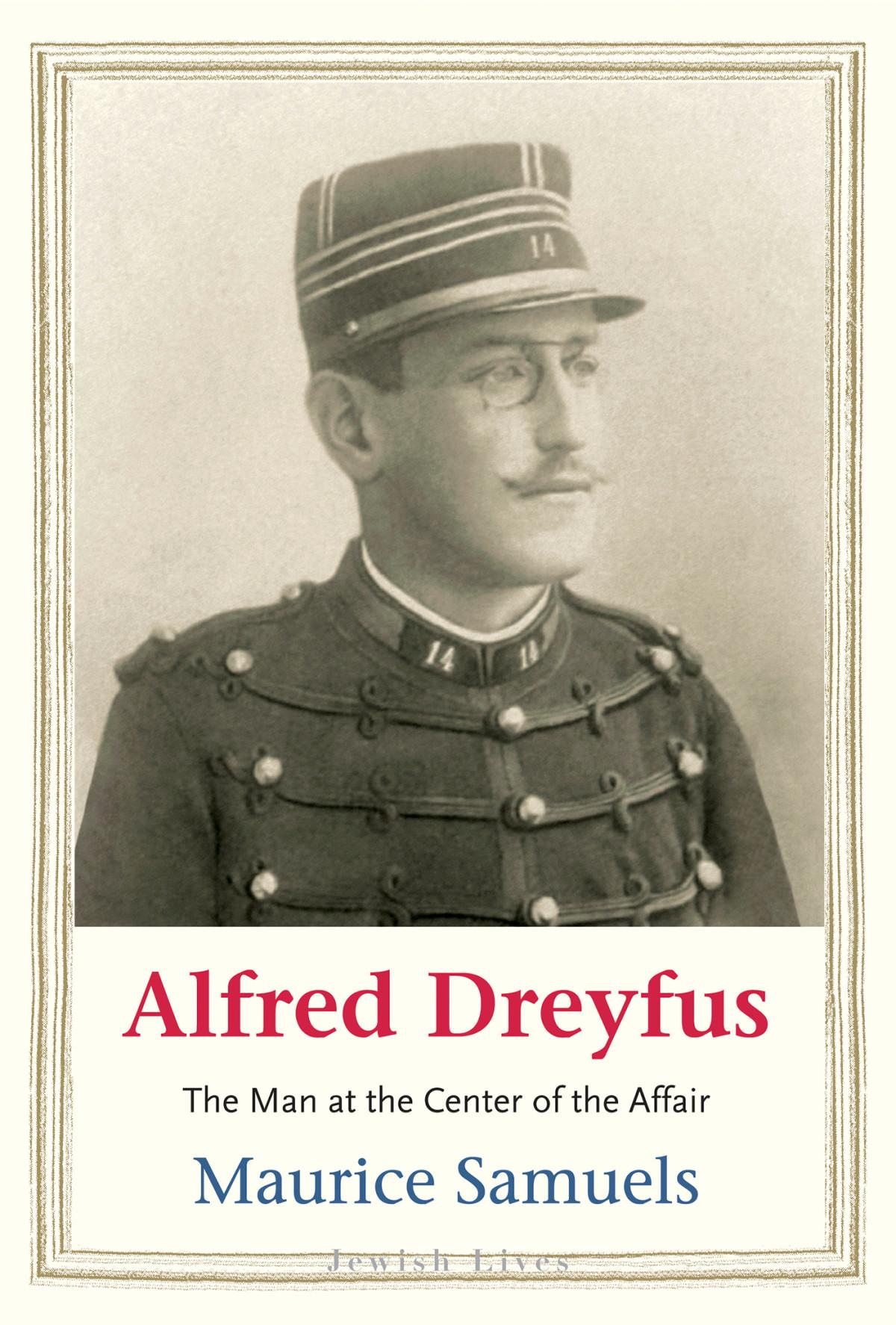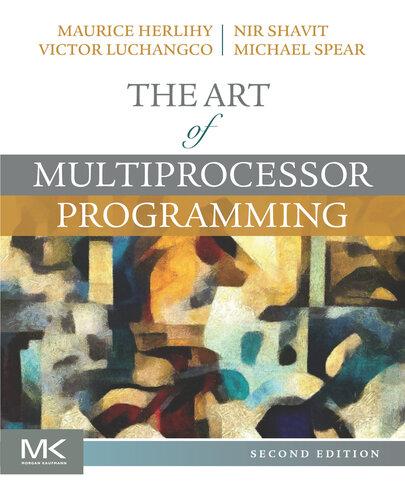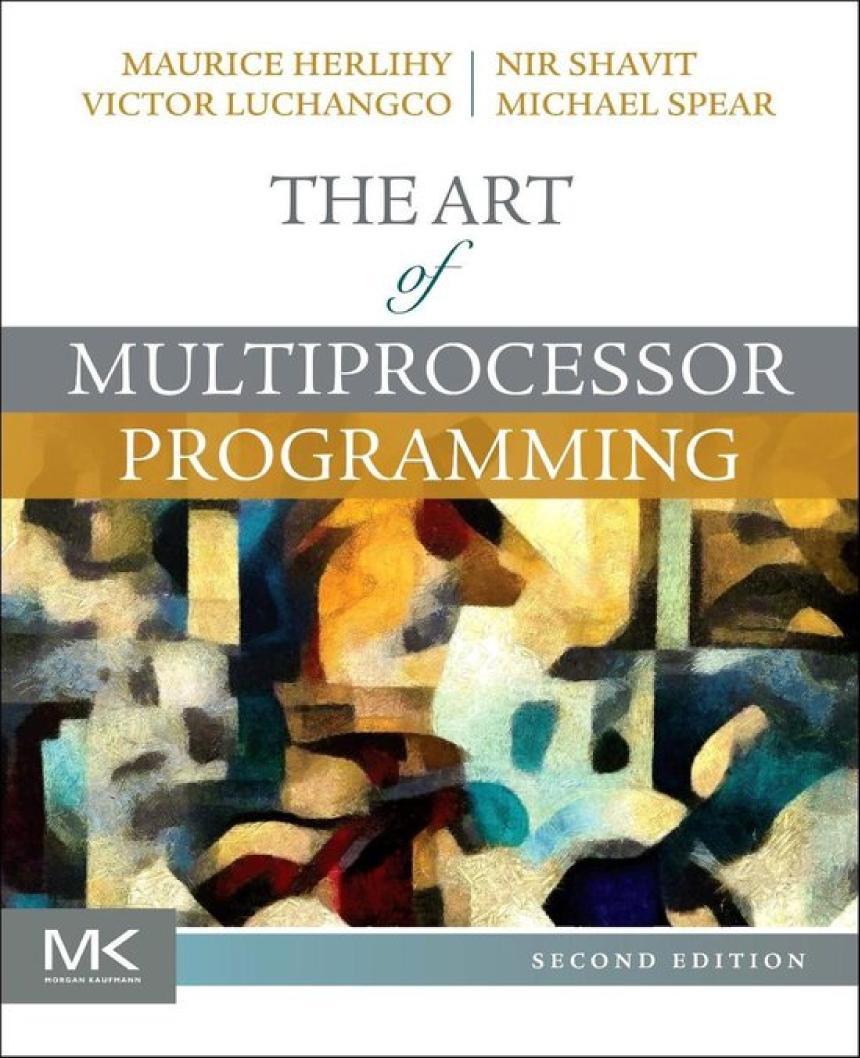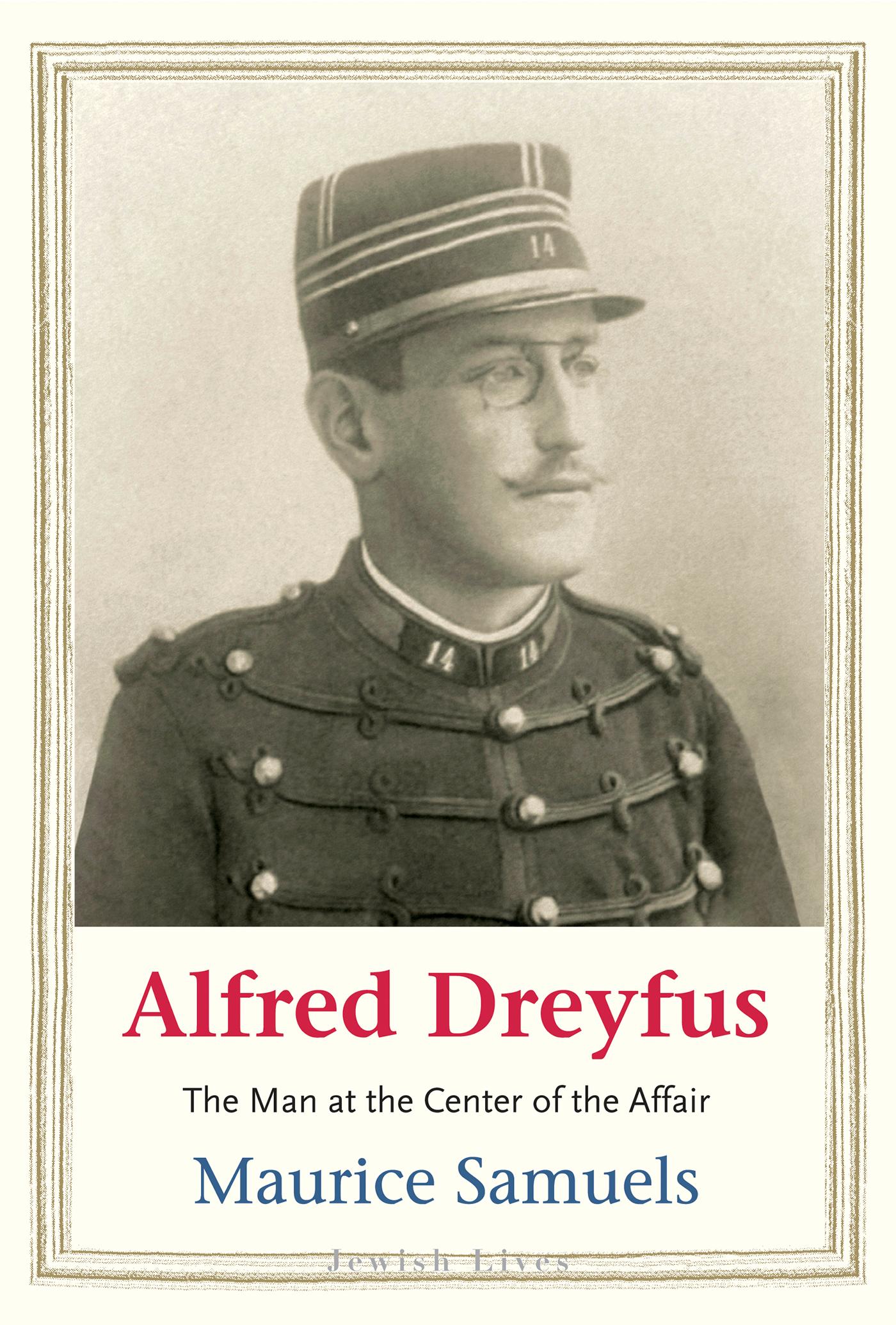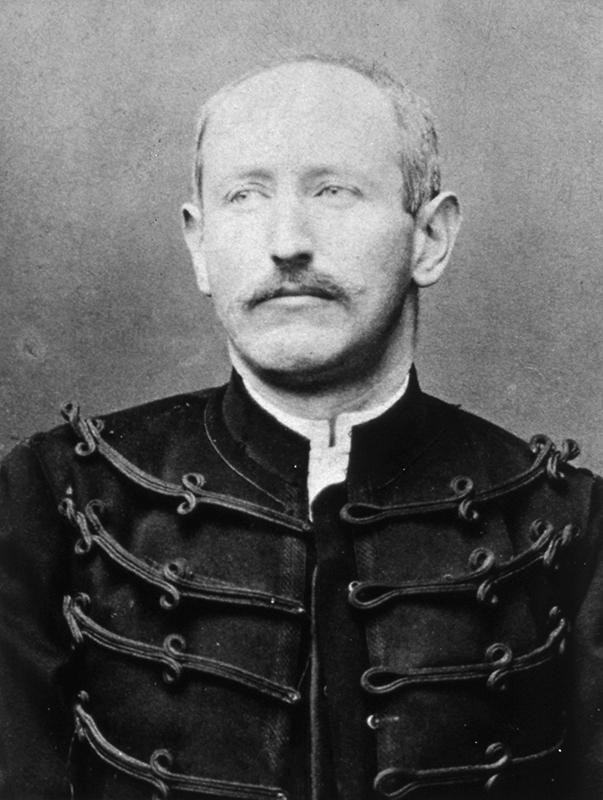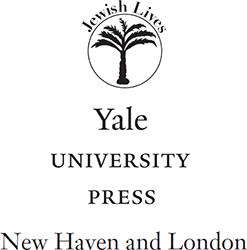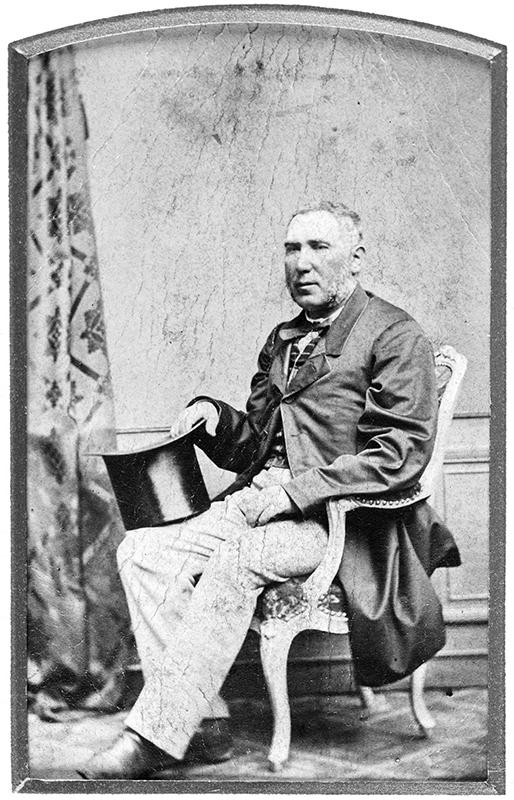ALFRED DREYFUS
Introduction
ALFRED DREYFUS would not have wanted to be the subject of this book. Shy, serious, ill at ease outside his family circle, he rarely voiced his opinions on political matters. But through no fault of his own, he was thrust into the center of a controversy that divided the French nation and riveted the world. An ardent patriot, he was accused of committing treason. A law-abiding citizen, he suffered a colossal injustice. A discreet Jew, he became the emblem of antisemitic persecution. Rarely has so private a person been forced to live so public a life.
At the end of the nineteenth century, the heyday of the mass press, multiple newspapers competed for attention in capital cities across the globe, and Dreyfus’s story made for very good copy: accused of selling military secrets to Germany, denounced by antisemites, found guilty on trumped-up evidence, deported to a brutal island prison off the coast of French Guiana, proven innocent by the efforts of his devoted family, defended by France’s leading intellectuals, brought back for a second trial, found guilty again, pardoned, eventually exonerated and awarded the Legion of Honor for his trouble. It is not hard to see why Dreyfus’s life has served as fodder for countless novels, plays, movies—even comic books—over the course of the past century.
It is also not hard to see why it has given rise to more scholarship than almost any other event in French history. The Dreyfus Affair plunged France into a political crisis because it raised fundamental questions about the nature of liberal democracy—the form of government that guaranteed rights to the individual through the rule of law. It raised these questions at a moment when liberal values
were triumphing throughout much of the world, but also when the seeds of anti-liberalism were being planted in many of the same nations that had pioneered political freedom. On its face, the affair asked whether individual citizens could claim the right to impartial justice even when this right conflicted with military or national interest. On a deeper level, it asked whether religious and racial minorities belonged in the nation at all.1
Scholars have thoroughly explored the ins and outs of Dreyfus’s legal case as well as dozens of other topics related to the affair. They have shown how it widened divisions between left and right in France, led to the separation of church and state, witnessed the first interventions by intellectuals in political matters, and even changed social and gender relations in lasting ways. Surprisingly, however, the Jewish dimension of the affair has received relatively little attention. Although everyone knows that Dreyfus was Jewish—often it is the onlything that people know about the case—the role that Dreyfus’s Jewishness played both for him and for his opponents has rarely been the focus of study. And the profound effect of the affair on Jews around the world has gone almost completely unexamined.
This hesitation dates to the early days of the affair itself, when Dreyfus’s family and other supporters, many of them Jews, feared that speaking out against antisemitism would only fan the flames of that hatred. They also wanted to avoid seeming to support Dreyfus merely out of sectarian impulses, and to give the lie to accusations by antisemites that Dreyfus was defended by a powerful “Jewish syndicate.” Instead, they sought to broaden their coalition by emphasizing the universal issues at stake in the case—truth, justice, the rule of law, et cetera.2
Ever since, scholars, especially in France, have shared this tendency to universalize the affair. Much of the scholarship on the case treats the issue of antisemitism only tangentially. And some scholars even go so far as to deny the importance of antisemitism to the case. There has been a corresponding reluctance, especially by those sympathetic to Dreyfus, to explore his Jewishness—perhaps because his enemies harped upon it for so long. Indeed, it is not a
coincidence, given the French tendency to downplay the Jewish angle, that the one work to discuss Dreyfus’s Jewishness unabashedly is by an American researcher.3
To write a “Jewish life” of Dreyfus is therefore something of a provocation, or at least a challenge to conventional historiography. The more I have delved into the affair, however, the more I have realized that Jewishness was central to almost every aspect of it. But what does writing a “Jewish life” of Dreyfus entail?
It means, first, exploring the role of Jewishness in Dreyfus’s life and that of his family. As will become clear, this is not a straightforward proposition. Dreyfus was not a spiritual or religious person. He rarely spoke of God in either his personal or public writing. He also rarely evoked what we would call today his “Jewish identity.” This was partly a result of his rationalism, his scientific worldview, but it also reflects a very specific way of being Jewish that emerged in France in the nineteenth century, which prioritized public displays of French patriotism and relegated religion to the private sphere.
Dreyfus is often referred to as an “assimilated Jew,” but this is a label that I prefer not to use in his case because it connotes rejection of the minority culture in order to join the majority one. Neither Dreyfus nor his family sought to disavow their Jewish origins. On the contrary, it was Dreyfus’s refusal to hide or downplay his Jewishness that attracted the negative attention of certain of his military superiors and that was at least partly responsible for the accusations against him. A major part of this book, especially the early chapters, involves explaining how Dreyfus and his family embraced a specific form of Jewish identity, Franco-Judaism, that took shape in the nineteenth century as a response to the French Revolution.
Writing a Jewish life of Dreyfus also means placing the question of antisemitism front and center. If the affair raised key issues for liberal democracy at a critical moment in world history, it did so because Dreyfus was Jewish. It was not a coincidence that when the French military learned it had a traitor in its ranks, suspicion fell on
the one Jew on the General Staff. Although antisemitism was not the sole factor leading to Dreyfus’s arrest and conviction, it was the critical one. And it was also critical to why his case divided the French nation. There had been other cases of military espionage, and of wrongful conviction, before Dreyfus, and there have been many since. None turned into an affair. French people cared so deeply about this case—primarily, if not exclusively—because Dreyfus was a Jew.
It was Dreyfus’s Jewishness that made the case about more than spying and more than the failures of military justice. As increasing numbers of Jewish immigrants flocked to western democracies in the late nineteenth century, fleeing persecution in Eastern Europe, the so-called Jewish Question—which asked whether Jews belonged in the modern nation-state as full and equal citizens—came to the fore. It was an especially fraught topic of debate in France. France had been the first European country to grant Jews full civil rights, during the French Revolution, but it was also the country where the backlash against Jewish emancipation was felt most intensely in the late nineteenth century. If you asked observers in 1899, at the height of the Dreyfus Affair, to predict which country was most likely to unleash a genocide against Jews, they would very likely have guessed France.
And yet the Holocaust did not start in France, even if the Vichy government contributed to its implementation. This was largely because the affair defused the time bomb of French antisemitic prejudice, or at least delayed its explosion, by mobilizing much of the French left against right-wing nationalism. The creation of organizations like the Human Rights League during the Dreyfus Affair helped form a bulwark against hatred, as did the courageous stance taken by certain Socialist leaders in defense of the Jewish officer.
Finally, writing a “Jewish life” of Dreyfus means exploring the effect of Dreyfus’s life on the lives of Jews around the world. In his humorous story “Dreyfus in Kasrilevke,” the Yiddish writer Sholem Aleichem satirizes the way small-town Jews in the Russian empire
obsessed over the case. “Paris, they say, seethed like a boiling vat. . . . But the anguish and pain that Kasrilevke underwent, Paris will not experience till Judgment Day,” Sholem Aleichem tells us of the reaction to the affair in his fictional Ukrainian shtetl. The effect on Jews was the same in Berlin and New York as in Kasrilevke, and in Chapter 6, I explore how Jewish newspapers in French, English, German, Hebrew, and Yiddish covered the case and understood its implications. The affair offered a kind of mirror in which Jews of all political persuasions saw their hopes and fears reflected, but it also promoted a new model of Jewish solidarity at a moment of great upheaval in Jewish history.
My motivations for focusing on the Jewish aspects of Dreyfus’s life might now be clear, but this still leaves open the question of why it is necessary to write a biographyof Dreyfus in the first place. Although historians have devoted an enormous amount of attention to the affair, relatively few have taken as their primary focus the man at the center of the controversy. There has long been an assumption that since Dreyfus was on Devil’s Island while the movement to free him took shape, he played little role in his own affair. The title of one of the classic histories of the case—Marcel Thomas’s L’Affairesans Dreyfus(The Affair Without Dreyfus)—encapsulates this approach. There has also been a long-standing assumption that Dreyfus himself was not a very interesting figure—or worse, that he lacked the capacity or inclination to understand the larger issues raised by his case. Léon Blum, an early supporter of the Jewish officer who went on to become France’s first Jewish prime minister, famously suggested that if Dreyfus had not been Dreyfus, he might not even have been a Dreyfusard.
In what follows, I return Dreyfus to the center of the story. Drawing on a range of sources, especially his letters and diaries, I present a picture of a very restrained public man that reflects some of the passion that he expressed in private. And I show not only that Dreyfus understood fully what was at stake in the campaign to clear his name, but that he made the campaign possible. Through his heroic resistance to the torture inflicted upon him by the French
state—a resistance that required a daily struggle for survival in shockingly brutal conditions over a period of five years—he enabled a gross miscarriage of justice by military and government authorities to come to light. It was only because of his belief in the principles of equality and justice for all, and his willingness to fight for them, that these principles eventually triumphed.4
One question that has haunted me, as I researched this book, is what it means to focus on the injustice done to one upper-middleclass (or as the French say, bourgeois) white man when the injustice that was constantly being perpetrated upon less privileged people in the nineteenth century often goes unremarked. Lest critics accuse me of anachronism in mentioning this qualm, I would point out that this was very much a question asked at the time of the affair, when the dominant assumption of the Socialist Party was that the working class should not get involved in the case because a rich military officer like Dreyfus could take care of himself. It was also a question discreetly raised by certain African American supporters of Dreyfus, such as W. E. B. Du Bois and Ida B. Wells-Barnett, who used the case to draw attention to anti-Black racism in the United States.
Without question, the Dreyfus case became an affair because the Dreyfus family possessed the resources to make it one. They spent more than a million francs in their twelve-year struggle for justice.5 The family members—Dreyfus himself, but also his wife and his brother were also able to mobilize sufficient culturalcapital to arouse the sympathy and outrage of Parisian intellectuals. How many victims of similar—or worse—injustice languished in prison, their plight unknown and unremarked because they lacked such resources? How many continue to do so today?
But if Dreyfus’s privilege is a fact, it does not negate the value of the struggle undertaken on his behalf. It was thanks to the enormous resources that the Dreyfus family devoted to the case that the ideal of equal justice emerged victorious. It was thanks to their skill and savvy that the forces of right-wing nationalism were at least temporarily held at bay in France and the cause of human rights
acquired a new set of institutions to defend it. For this, we are all in their debt.
In 2009, a book appeared with the title WhytheDreyfusAffair Matters. The author, Louis Begley, drew a connection between the suffering of the prisoner on Devil’s Island and the outrage of Guantanamo, where the United States military continues to hold prisoners for ill-defined reasons of state. Since then, the parallels between the affair and our own moment have only grown more apparent. The life of Dreyfus forces us to consider what it means when the institutions of liberal democracy come under assault and when half a nation commits to believing a lie. The life of Dreyfus also allows us to understand what it takes for truth to triumph against such lies, and how a nation can emerge from political crisis with faith in its institutions intact. As antisemitism and right-wing nationalism stage a comeback in France, the United States, and around the world today, the affair has much to tell us not only about the causes of hatred, but also about the ways it can be resisted. For these and other reasons, the Dreyfus Affair continues to matter, now more than ever.6
The Soldier
ALFRED DREYFUS was born on October 9, 1859, in the Alsatian town of Mulhouse, on the far northeastern edge of France, near the Swiss border. Jews had lived in the territory of Alsace for more than a thousand years. The name Dreyfus, common among Alsatian Jews, most likely derived from a Roman settlement, Treveris, which later became Trier (Trèves in French), suggesting very ancient roots in the region. Although Alsatian Jews prospered at various points during the Middle Ages, they also experienced periods of brutal violence. In 1349, during the Black Death, Jews were falsely accused of poisoning the wells, and several hundred were massacred in Strasbourg.1
A borderland, Alsace passed between different rulers over the course of its history. The province did not become fully French until 1648, when the Treaty of Westphalia brought an end to the Thirty Years War. Technically Jews had been banned from France since 1394, but when Louis XIV took control of Alsace in the middle of the seventeenth century, he permitted the several thousand Jews in the province to stay. The Sun King likewise made an exception for Alsatian Protestants when he revoked the Edict of Nantes in 1685. Although they were officially tolerated, Alsatian Jews faced numerous legal restrictions until the French Revolution. They were prohibited from living in large towns and cities and prevented from joining guilds or practicing most professions. Aside from a handful of
court Jews who made fortunes lending money to nobles and the crown, most Jews in the region scraped by as dealers in grain and livestock, peddlers, and small-scale moneylenders.
Alfred’s paternal great-grandfather, Abraham Israel Dreÿfuss, was born in 1749 in Rixheim, a village on the outskirts of Mulhouse with 1,500 Christians and 200 Jews. Alfred’s maternal side came from the towns of Ribeauvillé and Bergheim, not far away. Although Jews lived side by side with their gentile neighbors in the small villages of Alsace, they formed a community apart. Governed by a parnass (communal leader), they had their own judges to settle business disputes and strictly adhered to Jewish religious laws. Life centered on the synagogue and followed the rhythm of the Jewish calendar— weekly Sabbath rest and frequent holidays. The Jews of Alsace prayed in Hebrew, but mainly spoke Yiddish. Before the French Revolution, few Alsatian Jews were fluent in French, but neither were most of their non-Jewish neighbors, who also spoke a German dialect.2
At the time of the French Revolution, the lives of the Jews in the small villages of Alsace resembled those of their fellow Ashkenazic Jews in Central and Eastern Europe. But they were about to diverge. Considered among the most backward populations in France, the Jews of France’s eastern provinces began to attract the attention of Enlightenment reformers in the late eighteenth century. In 1787, the Academy of Metz sponsored an essay competition on the theme, “Are there means of making the Jews more useful and happier in France?” Respondents proposed reforms designed to encourage Jewish assimilation—or “regeneration,” as they called it. These ranged from banning kosher food to granting full equality. The small communities of Sephardic Jews in the southwest of France, whose ancestors had fled the Spanish and Portuguese Inquisitions and become integrated into French society, were held up as models for their Ashkenazic brethren.
When the Revolution broke out in 1789, the Sephardic Jews of the southwest and the Ashkenazic Jews of Alsace and Lorraine petitioned separately for citizenship. Although many delegates to the
revolutionary Constituent Assembly harbored prejudice against Jews, especially against Ashkenazic Jews, they eventually deferred to the principle proclaimed in the DeclarationoftheRightsofManandthe Citizen(1789) that all men were born equal in rights. With two decrees, the first applying to the Sephardim in 1790 and the second to the Ashkenazim in 1791, France made (male) Jews full and equal citizens (women did not gain the right to vote in France until 1944).
It was the first time that a modern European nation had declared the Jews worthy of equality, and it changed the course of Jewish history. Overnight, all the restrictions and prohibitions that had governed Jewish life in France for centuries vanished. There were no longer any legal obstacles preventing French Jews from climbing the economic ladder and participating in the life of the nation. Although Jews in parts of Germany, Italy, and Holland conquered by the French during the Napoleonic Wars also received rights by the early nineteenth century, it would take decades—and more than a century for the millions of Jews in the Russian empire—to attain the freedoms that French Jews gained by the stroke of a pen during the Revolution.
The liberal promise of equality in France was not just an abstract ideal, but a concrete reality. Within a few decades, French Jews, especially those who had moved to Paris, began to attend prestigious universities, join the liberal professions, and take leading roles in banking and industry. Two Jewish families—the Rothschilds and the Pereires—competed to build the nation’s first railroads. In the 1830s, France’s most prominent composers—Fromenthal Halévy and Giacomo Meyerbeer—were Jews, as was the star actress of the Comédie Française, Rachel Félix. By the 1840s, three Jews had been elected to the Chamber of Deputies. Although the vast majority of France’s Jews had been poor at the time of the Revolution, increasing numbers joined the middle class, the bourgeoisie, over the course of the nineteenth century. By the 1850s, when Alfred Dreyfus was born, France’s Jews were the best integrated in the world.3
The rise of the Dreyfus family typified this rapid social ascent. Alfred’s great-grandfather Abraham worked as a kosher butcher in Rixheim. Taking advantage of the relaxation of residency restrictions after the Revolution, he moved with his family to nearby Mulhouse between 1805 and 1808, and died there in 1810. His son Jacob returned to Rixheim temporarily, but by 1821, he was back in Mulhouse, which was becoming the center of France’s textile manufacturing industry, the “Manchester of France.” Jacob sold cloth, but also acted as a mohel, practicing ritual circumcisions for the growing Jewish community of the town. In official documents, he changed his name to Jacques, suggesting a desire—common among upwardly mobile Alsatian Jews—to appear more French. All the members of the Dreyfus family in Alfred’s grandparents’ generation at the end of the eighteenth century could sign their names, reflecting the high rate of literacy among Alsatian Jews (as high as 80 percent for men). Whereas male members of the family displayed at least the rudiments of a secular education by signing with Latin characters, the women used Hebrew characters.4
It was Jacques’s son, Raphaël, Alfred’s father, who made the family’s fortune. Born in 1818, Raphaël started out as a peddler. By the 1850s, he was serving as a commission agent for one of the many textile mills in Mulhouse, specializing in high-end printed and embroidered fabric. Raphaël opened his own cotton mill in 1862, during the American Civil War, when the sudden unavailability of cotton grown by enslaved people in the American South—which had supplied 90 percent of the raw material for French mills—and the closure of American markets drove many of the more established firms in Mulhouse out of business. This was the moment when the first Jews, who made up a little over 3 percent of the population of Mulhouse, began to penetrate the city’s tight-knit coterie of leading industrialists, almost all of whom were Protestant. Although they opened their ranks to Jews, the business elite of Mulhouse remained almost totally closed to Catholics, who made up the majority of the city’s working class.5
In a photograph showing Raphaël Dreyfus in middle age, he has short-cropped gray hair and very light blue eyes. He does not have a beard and his head is bare, signs that he had left behind his father’s traditional religious world even though he continued to practice orthodox Judaism. Although he lacks the elegant bearing that his highly educated children would later display, he wears a frock coat with a starched collar and holds a silk top hat in his lap—a totem of his position as an industrialist. In 1866, Raphaël traded his apartment on the rue du Sauvage, where his twelve children were all born (five died in infancy), for a newly built mansion on the rue de la Sinne, in one of the stately new districts of Mulhouse. The census of 1866 shows that the Dreyfus family employed two servants.6
By the time of his death in 1893, Raphaël’s fortune approached 800,000 francs, ten times the wealth passed on by his father. This did not make him one of the richest men in Mulhouse, which counted eighty-seven millionaires—the fortune of the Koechlins, a Protestant family, was estimated at 20 million francs in 1875—but it did signify an extraordinarily rapid enrichment, especially considering that the large amounts of money he had already passed on to his children through dowries and other gifts were not included in his estate. In addition to shares in the family textile business, and various properties around Mulhouse, Raphaël’s children also inherited seats in the synagogue valued at 2,280 francs.7
Raphaël Dreyfus (Photo © MAHJ/Christophe Fouin)
Raphaël never completely mastered French, but he Gallicized the spelling of his last name from Dreÿfuss to Dreyfus. Whereas many Alsatian Jews gave their children Old Testament first names, only two of the children born to Raphaël and his wife Jeannette (née Libmann), Mathieu and Rachel, bore first names of Hebrew origin. The name Alfred was of more exotic Anglo-Saxon origin and had a certain literary cachet in France, thanks to the Romantic poets Alfred de Musset and Alfred de Vigny.8
Raphaël groomed his eldest son, Jacques—named, in keeping with Ashkenazi Jewish custom, after his deceased father and the second oldest, Léon, to run the family business. But by the 1860s, when it came time to educate his two youngest sons—Mathieu and Alfred—the Dreyfuses possessed the resources to imagine a more ambitious future for them. Taught at first at home by private tutors, and then at the newly founded École professionnelle de Mulhouse, a preparatory school with a French curriculum anchored in modern languages and the exact sciences, Mathieu and Alfred were the first in their family to be fully immersed in French culture.9
With a father and older brothers always at the mill, and a mother in poor health after giving birth to Alfred, daily supervision of the household fell largely to the three Dreyfus sisters—Henriette, Louise, and Rachel—especially Henriette, to whom Alfred remained intensely close as an adult. Fine featured with a delicate constitution, Alfred had blond hair, light blue eyes, and a high forehead that would become even more prominent later in life, as his hair receded. He was a smart, curious child, and a bit of a dreamer. According to the reminiscences of a family friend, young Alfred had “exaggerated ideas of honor and justice,” which earned him the nickname Don Quixote in his family circle.10
The Dreyfuses were observant, if not very devout, Jews. They attended synagogue, but Raphaël did not play a leadership role in the Mulhouse Jewish community. Alfred’s sister Henriette participated in some Jewish philanthropic activities, but Raphaël did not leave the Jewish community anything in his will. He was also not among the group of parents of Jewish students at the École
professionnelle de Mulhouse who petitioned the mayor to provide Jewish religious instruction in 1868. However, Alfred may have benefited from such instruction along with his regular studies. Because the ruling elite of Mulhouse was dominated by Protestants— who were also a minority and were generally far less antisemitic than the Catholic majority—Mulhouse was unusual among French cities in facilitating supplementary Jewish instruction in public schools.11
The Franco-Prussian War of 1870–1871 ruptured Dreyfus’s peaceful childhood. Drawn into the conflict by the machinations of the Prussian minister Otto von Bismarck, France experienced a rapid defeat, with 80,000 French troops taken prisoner in just a few months of fighting, including the emperor, Napoleon III. In his memoir, Dreyfus describes experiencing his “first sorrow” as he watched Prussian troops march into Mulhouse from the balcony of the family’s house on September 16, 1870.12 On January 18, 1871, Bismarck proclaimed the creation of the German empire at the royal château of Versailles, a symbolic move calculated to further humiliate the defeated French. As part of the settlement that ended the war, Germany annexed the provinces of Alsace and Lorraine— which had become, thanks to families like the Dreyfuses, the seat of France’s industrial economy.
The French experienced the amputation of their eastern provinces as much more than a military and economic blow. It was a trauma that would shape the French national psyche for the next forty years —until France finally recovered Alsace and Lorraine after World War I. Attempting to identify the causes of the defeat in 1871, France subjected itself to a lacerating self-critique. For some—including the novelist Émile Zola, whose novel LaCurée(The Kill) in 1871 described the sexual perversions of a wealthy family in the decades preceding the debacle—the problem was the decadence of Parisian culture that had emasculated its men and virilized its women. Others blamed the military high command, always fighting the last war and woefully ill-equipped to face Bismarck’s modern army. Despite these criticisms, the French army itself took on an almost sacred aura in
the decades after 1870, as the country dreamed of exacting vengeance on the Teutonic foe.
Watching in rage as the Prussians entered Mulhouse, the young Alfred Dreyfus developed a passionate hatred for Germany that would fuel his subsequent military vocation. For his parents, the defeat in 1871 had more immediate consequences. Aside from worrying about their son Jacques fighting at the front, they soon faced a difficult decision: should they stay in Alsace to hold on to their business, even if this meant surrendering their French nationality?13
All Alsatians faced this difficult choice, but for Jews, the decision was especially difficult. The Dreyfus family had embraced French culture because it was socially advantageous, but they also felt a great loyalty to France for having been the first country to emancipate the Jews. By contrast, the North German Confederation, led by Prussia, had only granted the Jews full civil rights the year before, in 1869. The question of nationality for the Dreyfus family became more urgent when Bismarck declared he would draft young Alsatian men into the German army beginning in 1872. Jacques, the eldest son, was exempt since he had fought for France, but the three younger sons—Léon, Mathieu, and Alfred—faced the prospect of one day having to fight for the enemy.
Some of his fellow Mulhouse mill owners rebuilt their factories across the border in the French city of Belfort to continue to take advantage of French markets, but Raphaël lacked the resources for this maneuver. He therefore decided on a painful compromise. Jacques would remain in Mulhouse and become German, since he was exempt from the German draft, while the rest of the family would take French nationality. As Alfred later put it in his memoir, his father showed no hesitation: “despite owning important factories, he opted for France, both for himself and for his minor children.”14 In order to declare himself and his family French, Raphaël needed an official French domicile, so in May 1872 he traveled to the town of Carpentras, in Provence, where his eldest daughter Henriette had moved after marrying Joseph Valabrègue, also from a prominent
Jewish textile family. After securing French nationality in October 1872, Raphaël then moved the family to Basel, Switzerland, which was close enough to Mulhouse to allow him and his son Léon to remain involved in business affairs. Too sick to make the journey, his wife Jeannette stayed behind in Mulhouse with Jacques.15
Alfred spent the school year in Basel, separated not only from his mother and oldest brother, but also from his beloved sister Henriette. To make matters worse, he attended the Realgymnasium in Basel, where instruction was in German. Though he spoke the language reasonably well, he struggled academically. Hungry for the prestige a French education would provide for his youngest children, Raphaël opted for yet more separation: he sent Mathieu and Alfred to Paris to attend boarding school. Raphaël then moved back to Mulhouse with two of his older children, Léon and Rachel. (It is unclear what happened to the other daughter, Louise, but she may have gone to live with Henriette in Carpentras.) Raphaël requested German citizenship for Rachel, who was still a minor, which gave him and his wife the right to live in Mulhouse even while retaining French nationality for themselves.16
In 1873, the two youngest Dreyfus boys moved to Paris to start school: Mathieu attended the Collège Chaptal and Alfred the Collège Sainte-Barbe. Alfred was miserable in the spartan atmosphere of the dormitory, which was quite a departure from the warm and luxurious family home he had known on the rue de la Sinne. He would later say he “suffered terribly” in his early days as a boarder, developing a hatred for confinement. He even went home to Mulhouse for a period and considered stopping his studies. But he returned to school in Paris—according to a family friend, because he was expelled from Mulhouse as a foreigner by the German authorities. This time, Alfred joined his brother at the Collège Chaptal. Mathieu now lived in his own apartment on the rue Soufflot, near the Panthéon, and the fifteen-year-old Alfred continued to board at the school. Full of ambition but unaccustomed to the customs of the capital, he resembled one of the young provincial protagonists in a
novel by Balzac or Stendhal, who comes to Paris to make his fortune.17
Naturally reserved, Alfred became a scapegoat for his classmates. Biographers such as Michael Burns and Vincent Duclert attribute his unpopularity to his fragile health and slight Alsatian accent in French. They also speculate it might have been the result of antisemitism. Though the Dreyfus boys were not the only Jews at the Collège Chaptal, they were among the very few. But Alfred experienced this same sense of isolation throughout his life, whenever he left the intimate circle of his family, and his gregarious and handsome older brother does not seem to have suffered in the same way despite also being Jewish and having an accent. Alfred made few close friends. Those around him often tended to interpret his timidity as pride or hauteur, which did not help him later in life, especially at his trials, when the public inevitably found him cold and unsympathetic.18
In 1875, Mathieu abandoned his studies and served in the French army for a year before returning to Mulhouse to join the family business. This left Alfred alone in Paris. He resolved to stay in school because he now had a new ambition: to enter the École polytechnique, the university focused on engineering, which stood at the pinnacle of the French educational system. Entrance to the Polytechnique would be a launching pad for a career as a French army officer. Alfred had dreamed of getting revenge on Germany ever since he saw Prussian troops enter Mulhouse, and no doubt the sight of his brother in a French uniform reinforced his patriotism. His sister Henriette also helped kindle the fire: “Shouldn’t we have at least one officer in our family when the time for vengeance comes?” she reportedly asked Alfred during one of his visits to her home in Carpentras.19
Although the German army did not have Jewish officers until World War I, and there were few Jewish officers in the British or American armies before World War II, the situation was different in France. As Derek Penslar explains, military service was compulsory for French Jews during the revolutionary and Napoleonic wars,
where it came to be seen as a duty of their newly granted citizenship, and many French Jews embraced a military career in the nineteenth century. France had hundreds of Jewish officers and at least twenty Jewish generals during the Second Empire and Third Republic periods (1851–1940). Many of these officers came from Alsace, where patriotism ran especially high after 1870. Although it did not pay well, a career in the military offered prestige and social capital, which attracted upwardly mobile Jews like the Dreyfus family.20
The overrepresentation of Jews in the French army officer corps can also be explained by the increasingly meritocratic nature of that institution. True, many officers still came from traditional backgrounds: the army was long considered a good career option for younger sons of the nobility as well as for the offspring of the bourgeoisie hoping to improve their social standing. These Catholic scions often attended Saint-Cyr, the military academy that had been founded in 1802 by Napoleon. But as the army attempted to modernize in the wake of the Franco-Prussian War, it opened its officer corps to more students from the École polytechnique. Admission to both schools was determined by a competitive entrance examination, but private Jesuit secondary schools had a near monopoly on the preparatory classes necessary to pass the exam for Saint-Cyr. The best preparation for the Polytechnique, on the other hand, could be found at secular public schools, which Jews felt more comfortable attending.
Alfred returned to the Collège Sainte-Barbe, in the Latin Quarter, from 1876 to 1878 to prepare for the entrance exam to Polytechnique. Like most secular public schools, Sainte-Barbe was republican in political orientation, which is to say democratic and left-leaning. Dreyfus met the brother of his future defender, Georges Clemenceau, at Sainte-Barbe and may well have met his other future defender, the Socialist leader Jean Jaurès, at the school as well. Sainte-Barbe had many famous alumni, including Gustave Eiffel, the engineer for the famous tower constructed in 1889. Dreyfus studied hard and managed to pass the entrance exam for the École
polytechnique on his first attempt in 1878, although his class rank— 182 out of 236—was not quite as high as he might have hoped.21
Founded in 1794, during the French Revolution, the École polytechnique had alumni at the highest levels not just of the military, but also in industry, government, and academia. By attending Polytechnique, Alfred kept his options open: if his dream of a military career did not pan out, his engineering expertise would certainly be welcome in the family textile mill or in any other endeavor he chose. The school embodied the technocratic spirit that prevailed in Third Republic France, a period that experienced the vast expansion of France’s economy and the modernization of its infrastructure. Like Sainte-Barbe, the school was also republican in political orientation, and by the 1890s, its student body was 3–4 percent Jewish at a time when Jews made up only two-tenths of a percent of the French population. Dreyfus stayed there for two years and managed to improve his academic standing: his class rank at graduation was 128 out of 235.22
Upon graduation in 1880, Dreyfus joined the army. Appointed a sub-lieutenant, he attended the artillery training school in Fontainebleau for two years. Once again, his Jewish background may have played a role in his choice, as the artillery corps welcomed Jewish officers more readily than did the cavalry, still an aristocratic bastion. His academic performance continued to improve, and he graduated as number 32 out of 95. A written evaluation by his instructors, which later was cited by his lawyer at trial, was also reasonably favorable: “Good constitution and general health, mildly myopic; good physique; could make a fine officer.” If his teachers noticed his Jewishness, they did not see fit to mention it. “There is nothing about him that particularly stands out,” they stated in the report.23
After spending a year with the 31st artillery division in Le Mans, in the northwest of France, he received a posting with the 1st cavalry division in Paris, a sign that his superiors viewed him favorably. “M[onsieur] Dreyfus is an intelligent officer,” wrote his commander in Le Mans in July 1883. “Since his arrival in the corps, he has shown
zeal in service and care in maneuvers, but he has a great deal more to do to complete his military instruction.” His instructors found fault only with his voice, which they considered monotonous and weak.24 As Sander Gilman has shown, antisemites often criticized the way Jews spoke in the nineteenth century, faulting not just pronunciation or accent, but the tone of the Jew’s voice itself. Dreyfus’s “bad intonation”—perhaps the result of trying to hide his slight Alsatian accent would likewise be held against him at his later trials, when he was never able to summon the proper tone to elicit sympathy from his judges or the public.25
Dreyfus continued to receive favorable evaluations throughout his years of training. “He is zealous and conscientious,” noted one superior in 1884. Another from 1886 called him “an officer full of fervor, intrepid horseman, well educated, intelligent,” and noted that his only defect was his “deplorable intonation.” In 1888, he was praised for his “excellent memory and very lively intelligence” and commended for the way he instructed other officers in training.26
Dreyfus exemplified many of the qualities that the army sought as it tried to modernize after the defeat of 1871. What he lacked in charisma, he made up for with intelligence and seriousness of purpose. Dreyfus never received a posting to one of the colonial outposts in North Africa or Indochina where he would have had the opportunity to prove his bravery on the battlefield. And unlike the aristocratic graduates of Saint-Cyr, many of whom came from military families, he did not have a powerful protector among the military top brass. A new type of officer, he staked his career on his intellectual capacities. He was a technocrat, a specialist in munitions, which became all the more important as France competed with Germany to develop new weapon systems such as a long-range cannon.
If Dreyfus remained aloof among his fellow officers because of his shy reserve and bookish approach to the art of war, he also stood apart from them because of his income. Government functionaries, including army officers, received only about 2,000 francs a year, barely enough to rent a sparsely furnished apartment and to indulge
